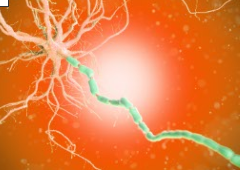Author: DynamicBrain Inc.
Publication: Monthly Newsletter
Published Date: May 20, 2020
During the past two months, staying connected remotely has become our main means of communication, and so has using BrainHQ in a telehealth rehab model! We were thrilled to learn about a new independent review that has shown telehealth rehabilitation treatment using our BrainHQ to be effective in addressing cognitive deficits associated with multiple sclerosis (MS).
We currently offer a simple platform specifically designed for health clinicians. The platform allows clinicians to work with patients remotely, customize their training, monitor performance, and make adjustments with ease. We sincerely hope that telehealth rehab treatment becomes mainstream as it has the potential to help many patients train in the comfort of their own home. Please don’t hesitate to contact us if you need further information.
On another note, if you are one of our BrainHQ trainees who would like to learn more about the recent changes in performance measurements and percentiles, you can find out more here.

Kind regards, Frieda Fanni
President
DynamicBrain Inc.
DynamicBrain Inc. is the Canadian partner of Posit Science Corporation providing brain fitness program BrainHQ in English and French.
|
 |
 The shape of sight
The shape of sight
What if a device could deliver visual information directly to the brain of someone with blindness, bypassing their damaged eyes or optic nerves? Researchers in Houston are one step closer to this goal. By stimulating implanted electrodes to dynamically “trace” shapes on the visual cortex of participants, researchers found that participants were able to “see.”
Learn more about this eye-opening study
here.
 Fatty foods brought into focus
Fatty foods brought into focus
During the COVID-19 pandemic, many of us have been turning to fatty comfort food to see us through these hard times. Unfortunately, new research suggests that eating just one meal high in saturated fat can hinder our ability to focus. Participants scored low in an attention assessment test after eating a high-fat meal, but they scored better after eating a low-fat meal. The research sheds light on how fatty acids may interact with the brain.
Reach more about the study
here.
 Hope on the horizon
Hope on the horizon
Parkinson’s disease is the second most common degenerative disease of the brain and affects millions of people worldwide. Scientists are now finding ways to replace brain cells that are progressively lost during Parkinson’s, by using a patient’s own reprogrammed skin cells. Using the patient’s own cells means that rejection is less likely. While these results are encouraging, it’s important to remember that they are based on a single participant. However, with hard work and more research, hope could well be on the horizon.
Learn more
here.